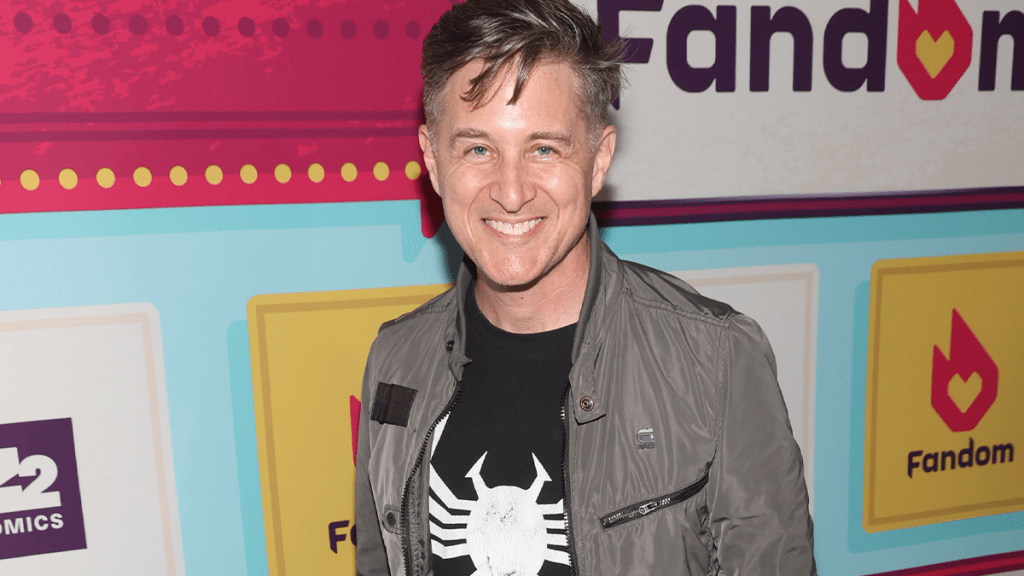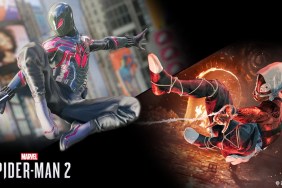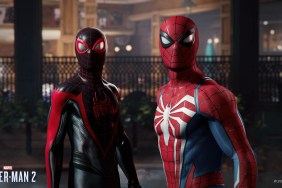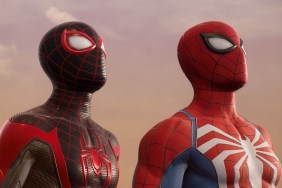PlayStation LifeStyle spoke with Marvel’s Spider-Man 2 star Yuri Lowenthal about the newly released superhero sequel from Insomniac Games. Lowenthal discussed what he’s learned from voicing Peter Parker over the years and what it was like to appear in Spider-Man: Across the Spider-Verse. Marvel’s Spider-Man 2 is now available on the PlayStation 5.
“The incredible power of the symbiote forces Peter and Miles to face the ultimate test of strength, both inside and outside the mask, as they balance their lives, friendships and their duty to protect those in need,” reads the story synopsis for Marvel’s Spider-Man 2.
Spencer Legacy: Marvel’s Spider-Man 2 is a pretty lengthy video game, so this is one of the versions of Peter Parker that audiences have probably spent the most time with. What challenges come with doing hours of performance for a character, rather than a movie or TV-length performance?
Yuri Lowenthal: I look at it more as a gift, that I get to create that bond with people that you don’t normally get. I mean, obviously, reading Spider-Man over a lifetime certainly takes the cake as far as that’s concerned, but [compared to] reading an issue of a comic or even a trade of a single run or an arc or watching a movie, we get to spend a lot more time with this Spider-Man in the game just by the nature of the game and the awesome writing that Insomniac always does. I’ve said it before — and I think most actors will — our job becomes very easy or, certainly, much easier if the writing is there.
So not only have created an experience where we get to spend a long time with that character, but they really take care with the human moments. It’s not just about playability and mechanics. While they dedicate a lot to that and they’ve gone a long way towards making us feel like what it would be like to be Spider-Man when playing the game, it’s about filling it in with all sorts of human moments, and I love those. People talk about the big moments — the Doc Ock scenes, the final scenes, and the Aunt May scenes, things like that — but it’s all those little things, all the little moments put together, that, I think, creates the relationship that you have at the end of a game like that.
And how does motion capture help you step into that role compared to only performing the voice?
Us getting to do motion capture for this — and performance capture, just to even put a finer point on it — has been amazing for many reasons. For me, when I’m just solo in a booth recording things … most of us can turn in a great performance without another actor opposite you — that’s just our job. But you will always get a better, more interesting, more surprising performance when you have an actor opposite you because you’re reacting off of what they’re doing in real time. Now, when I’m in the booth recording solo lines, the performance director, Kris Zimmerman can say, “When that character or when that actor was in recording, this is sort of what it felt like.” But they can’t always play everything for me — especially if they haven’t recorded that part yet.
But when we’re on the P-Cap stage, it’s a return to theater for all of us. It’s a return to doing a stage play. We’re all there together, reacting off of each other in the room, and you do get a certain magic. I’m sure it’d be fine even if we hadn’t recorded it that way, but there’s an alchemy you get when you put a bunch of actors together. I don’t think we would’ve gotten what we got in the first game, and hopefully, what people will see in the second game without getting to shoot it like a movie or perform it like a play.
You and Nadji Jeter have such good chemistry, from the beginning all the way up to Marvel’s Spider-Man 2. What was the process of forming that across the games and through performance capture like?
It’s been great working with Nadji, and, I’ll tell you what, we didn’t really have to work at that. It was just something that sort of happened naturally and came together naturally in that I was an older actor with more experience, he was a younger actor with less experience, which is sort of the “older superhero with more experience and younger superhero with less experience.” [Laughs]. So it actually tracked very organically, in a way. Our relationship off-camera and on-camera. So we got lucky in that respect that we got along and we had sort of a similar relationship. I don’t know if that was Bryan Intihar’s mastermind plan when he cast us. I don’t think it was, as smart and as forward-thinking as he is. [Laughs]. We lucked out in that respect.
What have you learned about voicing Peter from starting with the 2018 game through Miles Morales to now? Are you approaching it differently in Marvel’s Spider-Man 2 than you might’ve in the original? What’s that been like?
There’s definitely been a change. We all change as human beings and it’ll definitely affect your performance as an actor, whether you like it or not. But this Peter also, in this second game, has different challenges, both with his relationships and, most importantly, in his relationship with the symbiote. Whereas Peter normally puts everyone else before him — it’s sort of a core thing of Peter, that he wants to take care of people — the symbiote makes him become very selfish and makes him not very “Peter,” in that respect. It was difficult for me to make that shift.
On one hand, every actor wants to play a villain, you know? Trust me, you can ask any actor, and given the choice, they’ll always play villains. It gives you the license to act at being bad or to play at being bad with none of the social repercussions of that and none of the guilt later. While I was excited by that, I was surprised at how difficult it was to make your “Friendly Neighborhood Spider-Man” not friendly. I had settled into such a good, easy place with Peter that to push him into these places that are antithetical to who he is left me exhausted at the end of the day in a different way than I would be exhausted for a normal session.
That’s interesting. You also played this version of Peter in Across the Spider-Verse. What was it like to play him in a different place in a different setting? Was it different at all, or did you just bring him there?
I basically brought that guy, because that was the guy that they wanted. We were honored that they would want include Insomniac’s Spider-Man as part of the cinematic Spider-Verse, so I just brought that guy, which was basically just bringing me to the room. [Laughs]. It was really fun. Working with Phil Lord was a blast because he had some stuff that they thought they were going to go with, a couple lines, and said, “We think this is going to be it, but let’s spend an hour riffing and see what other sort of funny things we can come up.” I think, in the end, they ended up going pretty much with what they had originally thought they would do, but it was a blast just coming up with stuff with him.
I’d come up with something and then he’d get an idea and he’d come up with something. Then I’d be like, “Oh, wait, wait, what if we try this?” So it was fun just being a part of the thing that I loved so much. I loved that first movie so much. It’s so great to be included. The second one was awesome, and they had already sort of teased it in that first movie, they had dropped a couple of Easter eggs.
The suit in the cave!
Yeah! The suit for our Spider-Man in the background. So we already knew that they were into it, and that was … honestly, that would’ve been enough for us. When we saw that, we were like, “That’s the hugest compliment in the world.” But then to include us in that, it was super fun.








